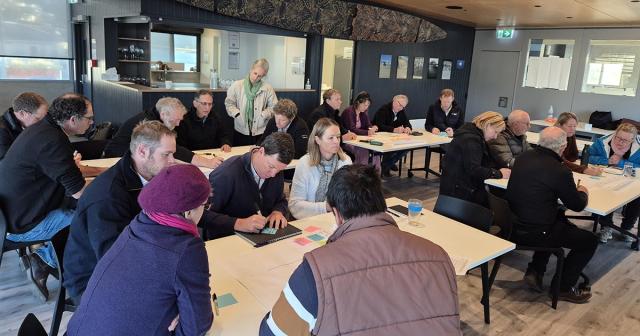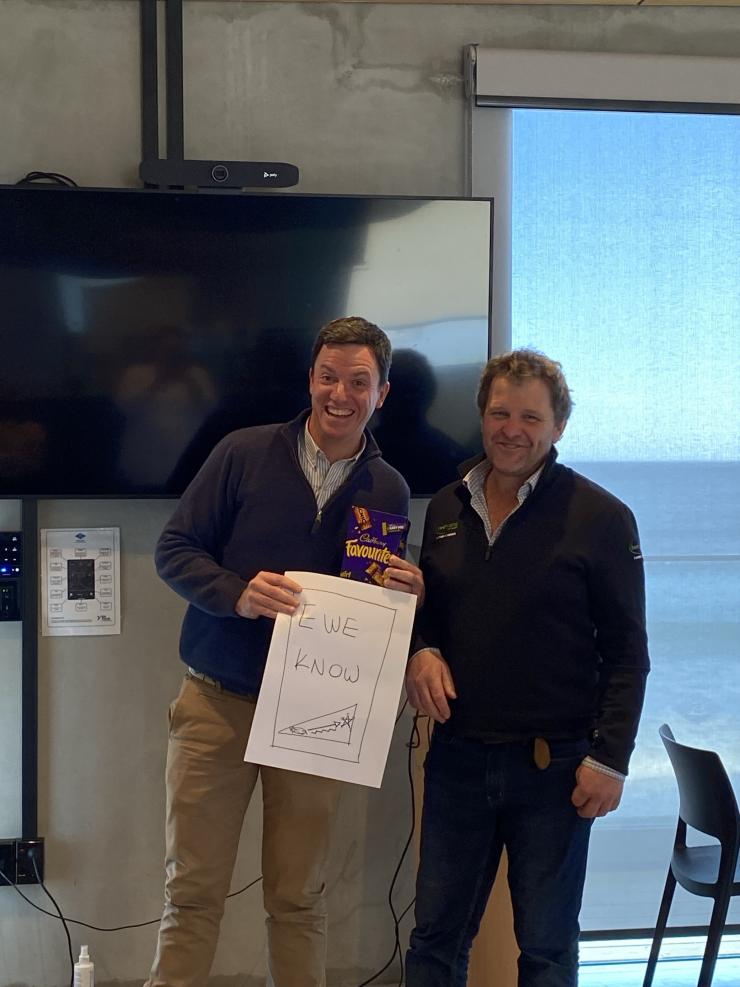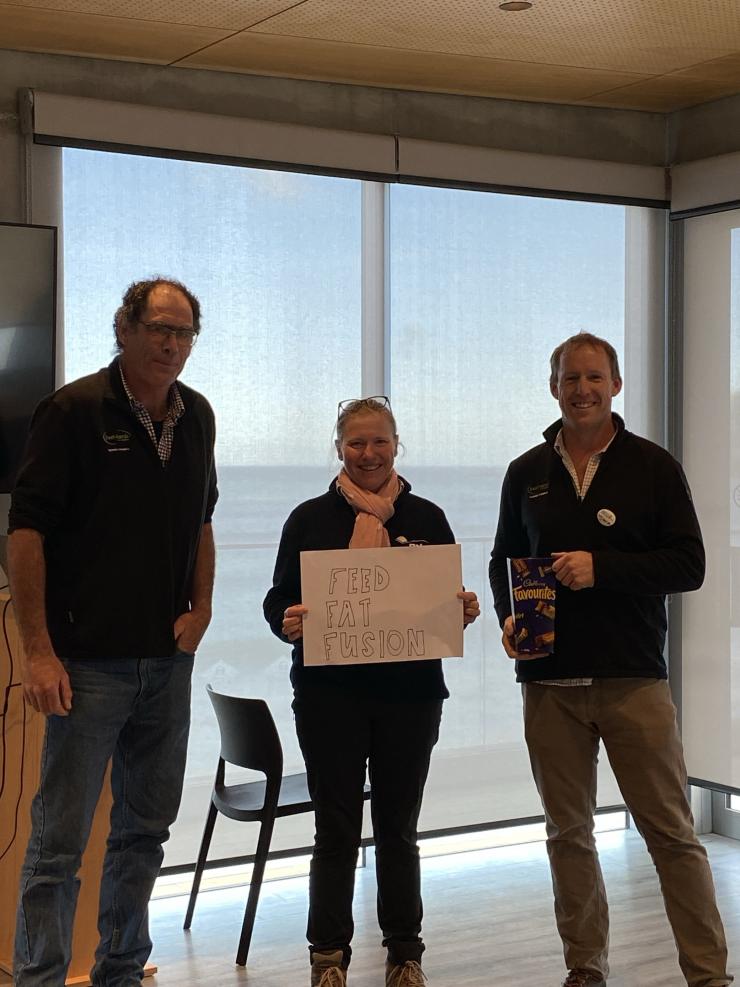The Farmer Research Advisory Group (FRAG) gathered in Wellington on 23–24 June for a packed two-day meeting focused on aligning research with real on-farm needs and showcasing fresh, farmer-led ideas.

Held at the Lyall Bay Surf Life Saving Club, the meeting brought together FRAG members from around the country to explore emerging trends, shape future research, and share ideas for improving on farm outcomes.
Since the last update we shared on FRAG, the group has welcomed several new members, including Sharon Dundon from Meat & Livestock Australia (attending her second meeting) and Nico Lyons from DairyNZ, both bringing fresh perspectives and insight to the group.
FRAG Chair Paul Crick said the group plays a vital role in keeping Beef + Lamb New Zealand’s (B+LNZ) research relevant and grounded.
“FRAG keeps research grounded in the realities of farming,” said Crick. “It’s about ensuring good science delivers real, useful outcomes for farmers, now and into the future.”
One of the key sessions looked at global change and what it means for New Zealand farming. Jarred Mair, Chief Insights Officer at MPI, shared insights on fast-moving shifts in population, debt, and consumer behaviour.
B+LNZ’s Head of Science and Research, Dr Suzi Keeling, said understanding these wider shifts is essential to shaping meaningful research.
“Farmers are navigating increasingly complex challenges like climate, market volatility, and biosecurity risks,” said Keeling. “FRAG helps ensure our research is proactive, not reactive.”
Kristin Kirkpatrick from B+LNZ led a discussion on how FRAG can support Regional Delivery Plans by helping connect national research priorities with local extension. Members shared ideas for better communicating practical insights to other farmers.
The group also gave early input into a new predictive risk model for facial eczema. In a session led by Dr Tom Brownlie (Ingenum) and Dr Cara Brosnahan (B+LNZ) , members discussed how farmers interpret animal health risks and what encourages or prevents early action.
“Tools like the facial eczema risk model being developed are only useful if farmers understand and trust the information,” said Keeling. “That’s why FRAG’s feedback on how and when risk information is delivered is so important.”
A hands-on workshop titled “The Case of the Missing Growth” challenged members to identify inefficiencies in hill country farm systems. Through group discussions and planning, many left with new ideas for improving performance on their own farms.
The meeting wrapped up with the fast-paced Offal Pit Pitch Challenge, which brought a dose of energy and humour. Inspired by the Shark Tank format, teams had just minutes to pitch inventive ways to get farmers thinking about feed budgeting or body condition scoring.
One memorable moment came from Warwick Lissaman and Reuben Moore, who gave the acronym MAGA a fresh twist for farming – “Make Agriculture Great Again.”
The winning team, ‘Feed Fat Fusion’ (Steve Nichol, Bevan Proffit, Sharon Dundon), impressed with their engaging and practical approach to promoting feed budgeting.
A close second was ‘Ewe Know’, a team made up of Matt Tayler and Nico Lyons, who tackled body condition scoring with not just a clever name but also an innovative take on body conditioning scoring.
Dr Keeling said the challenge was a perfect example of FRAG’s value.
“FRAG members aren’t just talking about change – they’re driving it.” she said.
FRAG continues to act as a crucial bridge between science and practice, ensuring research is shaped and sense checked by those who will use it. With sessions full of insight, the latest meeting proved that when it comes to farming smarter, farmers themselves are leading the charge.

